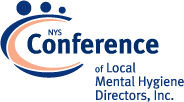November 10th, 2020: Today, a group of the nation’s leading experts in addiction research, treatment, and policy, released a comprehensive report outlining recommendations for addressing the opioid crisis. “Evidence-Based Strategies for Abatement of Harms from the Opioid Epidemic” provides clear guidance on abatement strategies based on decades of research evidence.
Hundreds of states, counties and cities are engaged in litigation against opioid pharmaceutical manufacturers and distributors for their role in fueling the current epidemic of opioid addiction and overdose fatalities. Plaintiffs are seeking remuneration for the extensive financial damages related to the crisis, and it is expected that settlement awards could exceed $50 billion.
The report released today consolidates the best research evidence to provide recommendations for high-impact investments that will improve the addiction treatment system, strengthen prevention and harm reduction programming, and address substance use disorder within the criminal justice system. It also includes detailed guidance related to economic impacts and policy considerations.
Contributing authors are foremost experts in their fields and represent organizations including: Harvard Medical School; Harvard T. H. Chan School of Public Health; Johns Hopkins Bloomberg School of Public Health; Yale University; Carnevale Associates, LLC; Partnership to End Addiction; Legal Action Center; University of Michigan School of Public Health; Stanford University; University of Pennsylvania, Perelman School of Medicine; Friends Research Institute; Vanderbilt University School of Medicine; RAND Corporation; and University of Pittsburgh. Funding support was provided by Arnold Ventures.
“We want to avoid the outcomes of previous tobacco litigation, in which only 2.6% of payouts actually went to smoking prevention and cessation programming. We want to make sure that during this particularly difficult time for many states, the money goes to evidenced-based programs that will result in good outcomes for families and those afflicted with opioid use disorder,” explains Sarah Twardock, Public Health Manager at Arnold Ventures.
At a time when state budgets across the country are being cut and public health experts anticipate a surge in substance use disorders in the coming years, the question of how to allocate funds stemming from the opioid litigation is critically important.
Richard G. Frank, PhD, Margaret T. Morris Professor of Health Economics in the Department of Health Care Policy at Harvard Medical School, explains, “Unfortunately, as COVID-19 continues to overwhelm individuals, families, and communities nationwide, we are seeing increased substance use and mental health problems stemming from COVID-related impact. Thus, it is more important than ever that we ensure localities have the funding and evidence of what works to strengthen their prevention, harm reduction and treatment infrastructure.”
This report was designed to support and empower state and local officials in making critical funding allocation decisions and inform them on how to reduce the harms of the current epidemic and prevent its further exacerbation. In addition to outlining the scientific support for each recommendation, the authors note the financial impact when various evidence-based strategies to abatement are implemented in jurisdictions.
With more than 70,000 Americans dying from opioid-related overdose each year, it is critical that the funds provided through any future settlement be used wisely and expeditiously to improve outcomes for the people and communities harmed by the crisis.
***
About Arnold Ventures: Arnold Ventures is a philanthropy dedicated to improving lives through evidence-based solutions that maximize opportunity and minimize injustice. Arnold Ventures invests in sustainable change, building it from the ground up based on research, deep thinking, and a strong foundation of evidence. With more than 90 employees in Houston, Washington, D.C., and New York City, Arnold Ventures focuses on criminal justice, health, education, and public finance.
About Legal Action Center: The Legal Action Center (LAC) uses legal and policy strategies to fight discrimination, build health equity, and restore opportunity for people with criminal records, substance use disorders, and HIV or AIDS. LAC seeks to end punitive responses to health conditions like addiction, mental illness, and HIV or AIDS, and to create equitable access to affordable, quality treatment.
Contact:
Adrienne Faraci, Communications Manager
Arnold Ventures
afaraci@arnoldventures.org
(914) 262-4233
Abigail Woodworth, VP of External Affairs
Legal Action Center
awoodworth@lac.org
(212) 243-1313



